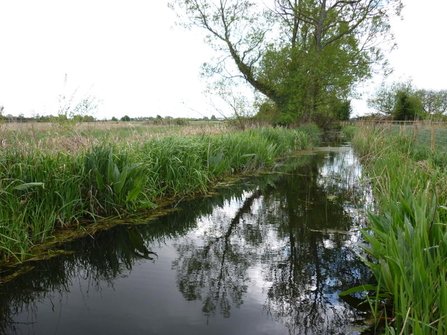Earlier this year, the Senedd Minister for planning released a new version of Wales' national planning policy, Planning Policy Wales (PPW), which included new policy on development proposals and Sites of Special Scientific Interest (SSSIs). SSSIs are the jewel in our nature conservation crown in Gwent and Wales, and are nationally designated by statute for their nature conservation interest – the important wildlife they support.
This new policy greatly increases the level of protection given to SSSI in the face of development threats, and the changes have been described by leading Welsh barrister Megan Thomas KC as "colossal". We planners are a sober bunch, and are not given to flights of hyperbole, so you can see these are seismic changes, which means here in Wales, our planning system has the strongest protection for SSSIs of any of the four UK countries, by a country mile.
Central to this new approach to SSSI and development is a new test, which says that development can only take place on SSSIs in "wholly exceptional circumstances", and this has become known as the "WEX Test". The planning system doesn't bans things, because it's based on the weight given to differing issues (the environment, economy, transport etc), but, you'd have thought that this looks like pretty much game over for development on SSSIs, doesn't it? So would I, but no!
Crucially, the new high bar set against development proposals on SSSIs, "colossal" though it is, does not contain enough detail for it to work properly. For starters, "wholly exceptional" sounds pretty final, doesn't it? And surely for a development proposal to be acceptable in an SSSI, they would have to be absolutely compelling reasons why it would need to be in an SSSI, and absolutely cannot be elsewhere in Wales.
But due to the lack of detail in PPW, developers are having a really good go at dodging the WEX Test, by arguing that, for example, a general need for the type of development they are proposing (economic development, energy etc) is a wholly exceptional circumstance. Thus, according to their logic, all development applications of this type, wherever they are in Wales are wholly exceptional - without exception, they are all exceptional!
You might think "sorry-what?" to that argument, but there's more. A quick look at the documents produced by the plethora of developers targeting the Gwent Level SSSI reveals that in their view every development proposed on the SSSI constitutes a wholly exceptional circumstance. Thus they are unexceptional in their exceptionality.
As I write this, the minister for planning has given permission for a development at Garn Fach in Powys even though it is hydraulically linked to the River Wye Special Area of Conservation (SAC) and abutts the Elenydd SSSI, one of the most important areas of hill land in Wales for nature conservation and of outstanding interest for its range of breeding birds. The report says the application passes the "wholly exception circumstances" test in view of the need to combat climate change and the peat restoration proposals of the developer.
As the Queen of Hearts said to Alice: "Words mean what I want them to mean".
This planning policy fuzziness is an open invitation for developers to use these types of logical gymnastics to push their damaging development proposals - the lack of clarity and guidance from the Welsh Government risks enabling developers to drive a coach and horses through their own planning policy. Indeed, developers point specifically to the lack of guidance from the Welsh Government on WEX, so your definition of WEX is as good as mine.
We are calling for a moratorium on development on the Gwent Levels SSSI, and specifically for the Welsh Government civil servants to produce guidance on what constitutes and does not constitute a wholly exceptional circumstance in the context of chapter 6 of Planning Policy Wales.


